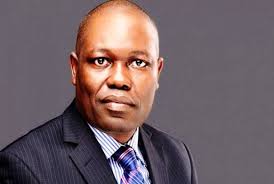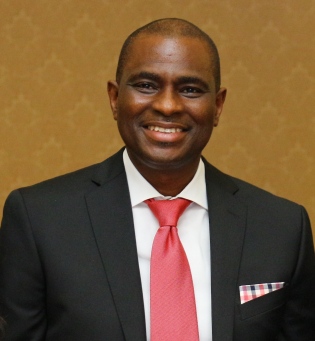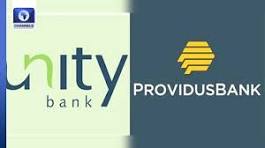THE ECOBANK and Airtel Story: Surviving a Contingent Liability and Equity Sale

Ecobank Transnational Incorporated (ETI) Plc released its 9month 2020 result in November 2020 with sufficient optimism about its strong short-term outlook. Indeed, analysts have noted that the group’s balance sheet-cleaning exercise involving a one-off charge for the total write-down of its cost of goodwill incurred on the acquisition of Oceanic Bank Plc in 2011, would brighten its financial results in the year ended December 2020. Although the 9 months 2020 audited accounts of the behemoth were sprinkled with large one-off charges to its P&L from the restructuring of operations and goodwill write-offs during the year, the group remains hopeful that it would present shareholders with a strong year 2020 performance which it believes would be followed by a more impressive outlook in 2021. The problem with this outlook, however, is that a recent Court of Appeal (CoA) judgment delivered on November 24, 2020, has put observers on notice on the possibility of a contingent obligation of the Nigerian operations of the lending group which could throw a wrench in the group’s business as a liability of N22.5bn may crystalize in forthcoming years.
The Short of a Long Story
Trouble started when Dr. Oba Otudeko, Chairman Honeywell Group, and Broad Communications Limited filed an action at the Federal High Court (FHC) in 2006 challenging the Delta State Government’s purchase of O & O Network’s shares in Airtel Nigeria. According to Broad Communication Limited and Dr. Otudeko, the sale of the shares was unlawful, and a breach of a Shareholders’ Agreement approved and signed by shareholders in Airtel Nigeria (warehoused in O&SO). After the suit was filed, efforts were again made in 2015 to sell the disputed shares.
To forestall the attempt to negate the court’s final judgment on the suit, Otudeko and Broad Communications published a “Buyer Beware” notice on the disputed shares. Despite this and the persistent attempt by O&O Networks to sell the shares, the Federal High Court on the 5th of February 2015 per Justice Tsoho gave an order restraining all parties from dealing or tampering with the shares in the custody of ETI pending the final determination of the suit.
However, in what was alleged to be a disregard of the orders of the court, O & O Networks and ETI entered an arrangement with Bharti Airtel Nigeria Limited for the sale of the disputed shares to Bharti Airtel Nigeria Limited for the sum of N22.5Billion in 2018 contrary to the order of Justice Tsoho’s.
Following the discovery of the sale despite the court order, Dr. Otudeko and Broad Communication through their solicitor filed an application urging the court to direct O & O Network Limited to deposit the sum of N22.5 billion being the proceeds of the sale into an interest yielding account in the name of the Chief Registrar of the Federal High Court pending the determination of the substantive suit by the court.
In delivering her ruling on March 7, 2019, Justice Olatoregun held that the order to maintain the status quo earlier made by the Honorable Justice Tsoho on February 5, 2015, was in force and that O & O Networks ought not to have agreed with Bharti Airtel as this amounted to the disobedience of an existing court order.
Based on this, the judge ordered O&O Networks to pay the sum of N22.5Billion, being the proceeds of the sale of the shares of Airtel Nigeria Limited into the custody of the Federal High Court within 7 days (see illustration below).
The Journey of A Judgement

A View from The Bar
Presumably, the restrictions on O & O Ltd. from selling the shares it held in Airtel Nigeria Ltd. arose from an agreement made under Section 22 (2) of the Companies and Allied Matters Act (CAMA) 2004 (the new CAMA 2020 commences application from January 2021) which provides that private companies (which Airtel Nigeria Ltd was as at the time the suit was instituted) should, via their Articles of Association, restrict the transfer of shares. As this was the case, O & O Ltd. was prohibited from dealing with its shares in the manner it would appear it had done and in line with observations of the Federal High Court (FHC), Lagos, and the Court of Appeal (CoA).
Further, O & O Ltd’s several attempts at selling the shares of Airtel Nigeria Limited after an order of a Federal High Court restricting any dealing on the shares would appear to be a disregard of the orders of the court and it was surprising that in addition to declaring that the company deposits the proceeds of the share sale in a nominated account, no other punitive order was made. Nevertheless, O&O Ltd. may choose to appeal against the Appeal Court’s decision and escalate litigation to the Supreme Court to vacate the order of the lower court. It is however unlikely, in the opinion of some lawyers, that the Supreme Court would rule in favour of O & O Ltd considering the terms of the initial shareholder agreement relied upon by the respondent.
Given the potential legal outcome of the litigation of Oba Otudeko and Broad Communications Limited against ETI and O&O Networks Limited, the accounting principle of prudence may require that the bank discloses the contingent liability it is expected to incur if the Supreme Court reaffirms the decision of the lower court, compelling ETI/O&O Limited to deposit with the court registrar N22.5bn that was the alleged proceeds of the sale of Airtel Nigeria Limited shares owned by O&O Limited to the Delta State Government (see illustration 1 below).
ETI’s Possible Contingent Liabilities; A Cold Harmattan Ahead?
A Tidy Bit of Arithmetic
In its 9 months, 2020 audited financial statement ETI reported a gross earning of US$1.6bn, while its profit before tax over the period was US$90.78m. The Nigerian operations of the group posted a profit before tax of US$37.16m. If the ETI/O&O contingent liability of N22.5bn (US$57.84m) is charged against the PBT of the Nigerian operations, the Nigerian operations would have recorded a loss of US$20m in 9months 2020. This would also have affected the group’s PBT for 9months 2020 with the group posting a hypothetical PBT of US$33.62m (as against its reported US$91m) if the banking giant had decided to fully provide for the contingent liability (see Table 1 below which gives ETI’s P&L performance in 9months 2020 region by region).
But should the bank have provided for a court judgment that had not yet been determined? The Appeal Court decided in November 2020 before the 9months audited account was released that ETI place N22.5bn with the high court registrar until a final determination of the case was taken. This, according to legal authorities, was consistent with past orders in such cases. The amount was to be placed in an escrow account until a final judgment is given.
Prudent accounting practice, according to some analysts, suggests that ETI should have informed shareholders in a note to the 9 months 2020 accounts of the size and nature of the contingent liability, even if the banking group deemed it unnecessary to make provisions in its books (see illustration 2 below).
Making That Contingent Liability Decision
However, group executives feel differently. A discussion with the top executives of the bank indicates the following position:
- First, no judgment has been awarded against O&O. The bank executives said the bank does not have provisions on the case because it believes there is no present obligation under IAS 37 rules
- Concerning contingent liability disclosure, IAS 37 gives guidelines for making material disclosures but also gives room not to disclose if the possibility of an outflow of economic benefits is considered remote As far as the senior executives of the continental banking group are concerned an internal assessment of the situation suggests that no liability will arise and the probability of the court awarding a judgment against O&O is low/remote. On Proshare’s further probing the bank executives reaffirmed their position that there was no court judgment against O&O and that they strongly believe that when the substantive matters are heard in court, there would not be a judgment award against the company. Nevertheless, the executives said that they would regularly review their position as progress is made at the courts.
The Liability Debate
Opinions differ concerning how to treat the N22.5bn potential liability. While some accountants say that the banking group need not make any provision for the payment since the legal case was ongoing and was likely to proceed to a higher court (Supreme Court) for final determination of the substantive matter, other accounting professionals insist that since the liability has been identified as a potential outcome that has a material impact on the banking group’s P&L, the bank should at least disclose the possibility of crystallization of the amount even if no immediate provision need be recognized. The International Accounting Standard (IAS) that appears to address the issue is IAS 37.
Objective
The objective of IAS 37 is to ensure that appropriate recognition criterion and measurement bases are applied to provisions, contingent liabilities, and contingent assets and that sufficient information is disclosed in the notes to the financial statements to enable users to understand their nature, timing, and amount. The key principle established by the standard is that a provision should only be made when there is a liability i.e. a present obligation resulting from past events. The standard, therefore, aims to ensure that only genuine obligations are dealt with in the financial statements – planned future expenditure, even where authorized by the board of directors or equivalent governing body, is excluded from recognition.
Recognition of a provision
An entity must recognize a provision if, and only if [IAS 37.14]
- a present obligation (legal or constructive) has risen as a result of a past event (the obligating event),
- payment is probable (‘more likely than not’), and
- the amount can be estimated reliably.
An obligating event is an event that creates a legal or constructive obligation and, therefore, results in an entity having no realistic alternative but to settle the obligation. [IAS 37.10]
A constructive obligation arises if past practice creates a valid expectation on the part of a third, for example, a retail store that has a long-standing policy of allowing customers to return merchandise within, say, a 30-day period. [IAS 37.10]
A possible obligation (a contingent liability) is disclosed but not accrued. However, disclosure is not required if payment is remote. [IAS 37.86]
In rare cases, for example in a lawsuit, it may not be clear whether an entity has a present obligation. In those cases, a past event is deemed to give rise to a present obligation if, taking account of all available evidence, it is more likely than not that a present obligation exists at the balance sheet date. A provision should be recognized for that present obligation if the other recognition criteria described above are met. If it is more likely than not that no present obligation exists, the entity should disclose a contingent liability, unless the possibility of an outflow of resources is remote. [IAS 37.15]
Measurement of provisions
The amount recognized as a provision should be the best estimate of the expenditure required to settle the present obligation at the balance sheet date, that is, the amount that an entity would rationally pay to settle the obligation at the balance sheet date or to transfer it to a third party. [IAS 37.36] This means:
- provisions for one-offs events (restructuring, environmental clean-up, settlement of a lawsuit) are measured at the most likely amount. [IAS 37.40]
- provisions for large populations of events (warranties, customer refunds) are measured at a probability-weighted expected value. [IAS 37.39]
- both measurements are at the discounted present value using a pre-tax discount rate that reflects the current market assessments of the time value of money and the risks specific to the liability. [IAS 37.45 and 37.47]
In measuring a provision consider future events as follows:
- forecast reasonable changes in applying existing technology [IAS 37.49]
- ignore possible gains on the sale of assets [IAS 37.51]
- consider changes in legislation only if virtually certain to be enacted [IAS 37.50]
Remeasurement of provisions [IAS 37.59]
- review and adjust provisions at each balance sheet date
- if an outflow no longer probable, provision is reversed.
Running Battles
Ecobank’s run-in with Oba Otudeko/Honeywell Group is not new (see Proshare’s earlier 2019 reports, Court Orders Ecobank to Pay N22.5b Within 7 Days Over Airtel Shares; Suit Adjourned to May 28, 2019, and Facts Behind the Ecobank vs. Otudeko Debt Debacle, Airtel/SEC Angle). But this matter has several twists centred on corporate governance The struggles between Oba Otudeko and various alter egos such as Honeywell have had a long and checkered history with ETI that unveils the underlying challenges in the management of bank debt and debtors. This was highlighted in a 2019 DebtorsAfrica report on Nigeria’s credit creation process and its difficulties. According to the report on pages 10 and 11 the new paradigm for lending and borrowing would need to run along the following tracks: “Rather than lenders and customers finding themselves locked in interminable arguments over repayment plans and default on repayment pledges, the pre-agreed resolution mechanism kicks-in and pulls the loan repayment process into a remedial default mode designed to restructure the Facility in a way that averts delinquency”. The report further noted that to support a process that breaks the bone of asymmetric information with the attendant problems of borrowers having more knowledge than lenders on their character and credit history, an online digital delinquent loans register should be created across the African continent.
According to the report: “A digital library of publicly available delinquent bank debtors provides lenders insight into the character and managerial capacity of borrowers. The digital library places both a moral and business burden on delinquent borrowers as prospective lenders would use the library to fact-check the borrowing history of a loan applicant and use the history to set up a character rating index that would guide credit appraisal memorandums (CAMs) and inform the acceptance or decline of credit requests”.
The pressure of having lenders able to quickly and effortlessly review the nature of past loan facilities and repayment records of a prospective borrower creates a borrowing environment that is sensitive to historical loan performance data and past loan resolution difficulties. The register profiles the corporate boards of borrowing entities and helps lenders assess the fitness of the company’s leadership as a borrower. Leveraging the psychology of ‘social proofing’, the failure of a borrower to abide by the terms of a loan agreement with one lender would put other lenders on notice to decline the loan request of a previously delinquent borrower until such a time the borrower redeems the earlier facility. The soundness of the psychology has been vindicated by the numerous requests from delinquent borrowers for media houses to bring down digital stories posted online or references to earlier delinquencies associated with the companies.
In respect of the ongoing legal process between Oba Otudeko and O&O, a common denominator in the various legal battles is the now-defunct Oceanic Bank which was acquired by Ecobank Transnational Inc. (ETI) in 2011. Oceanic Bank acquired an equity interest in Airtel as a result of a loan default by Adewale Tinubu who took a loan from Oceanic Bank by collateralizing the facility with his shares in Airtel. “Tinubu” owned the Airtel shares under a special purpose vehicle called O&O Networks (‘O&O’). On default of his loan payment, the erstwhile Oceanic Bank took over the Airtel shares still housed in O&O.
When ETI acquired Oceanic Bank in 2011 it acquired all the Oceanic Bank’s assets and liabilities including the Airtel shares owned by O&O. O&O subsequently became an SPV for a broader number of shareholders including Oba Otudeko and Broad Communications. This was, however, the beginning of the O&O, Otudeko/Broad communications Jujitsu.
The Otudeko corner insisted that by the terms of the shareholder’s agreement signed by the parties in O&O existing shareholders had the right of first refusal to purchase the Airtel shares before O&O could offer the shares to third parties for purchase. The issue remains a matter for determination by courts of the competent local jurisdiction. The issue of greater concern from an analyst’s point of view is the governance guidance in the course of the various transactions and the oversight expected from financial regulators. The sale of the shares by O&O to the Delta State Government was a private arrangement that did not involve the Securities and Exchange Commission (SEC) oversight but is worrisome where a state government buys shares in a private company using state resources. Of particular concern is that most of these kinds of share acquisitions are canopied under a fog of beneficial ownership. But the concern in this particular case was that, according to the pronouncement of a Lagos High Court, O&O breached the terms of its own shareholder’s agreement in respect of giving existing shareholders the right of first refusal in buying its Airtel shares. Without going through long and circuitous court processes, some informed analysts have advocated that the domestic investment climate could be improved by an SEC-administered resolution mechanism for private equity transactions involving a variety of parties, such as the case of O&O, Otudeko, and ETI. The jury is still out on whether this suggestion would help the system improve the quick resolution of conflict but what is clear is that the present legal framework is slow and could be jammed by clever legal contrivances. The possibility of speedy resolution of conflicts in matters related to equities and perhaps fixed income assets would help in encouraging capital importation by way of foreign portfolio investments (FPIs) and should be seen as an urgent requirement for improving foreign and domestic investment. Some lawyers have argued that since the Investment and Securities Tribunal (IST) can only deal with matters related to capital market operators (CMOs), private companies in dispute might find the alternative dispute resolution (ADR) channel a more pragmatic approach to commercial dispute determination.
Closing Thoughts – Making Governance Count
ETI has acted prudently by making total provision for its cost-of-carry of Oceanic Bank goodwill over the last ten years. Working-off the goodwill from its books in 9months 2020 is a decent piece of financial spring cleaning (see illustration 4 below). Also, writing off its restructuring obligations in the year was equally useful in clearing up the books to allow the organization to breathe without burden. This move by ETI’s management seems to comply with the expected governance standard of a continental financial powerhouse. However, a few niggling problems remain.
The contingent liability of the O&O Network share sells hangs over the ETI operations like a hawk.
The fact that it has not been explicitly recognized in the bank’s books, if not as a contingent liability at least as a potent business risk, is worrying. It would have been a governance boon if the group had in its recent financial statements reported that the business dispute was not sufficiently problematic to be classified as a contingent liability. Admittedly the judgment call belongs to the management and board, but shareholders would have felt more comfortable with recognition and assurance as a stakeholder engagement strategy. Corporate Nigeria must increasingly tighten its stakeholder communication channels to help investors, for example, gain a full sense of the business’s strengths and vulnerabilities. While IAS rules such as IAS 37 allow for judgment calls, such latitude should be adopted with due care for ensuring that investors are properly apprised of the organisations weaknesses, strengths, opportunities, and threats.
For corporations listed on official capital market exchanges such as the Nigerian Stock Exchange (NSE), the disclosure requirements are raised more than a few notches. The ETI, O&O Network, Oba Otudeko, and Broad Communication tangle are instructive not in its simplicity but in the guidance, it offers on issues such as shareholders’ rights of first refusal and the clever ways SPVs can be used to acquire and sell shares; the obligations, responsibilities, and blowbacks.




